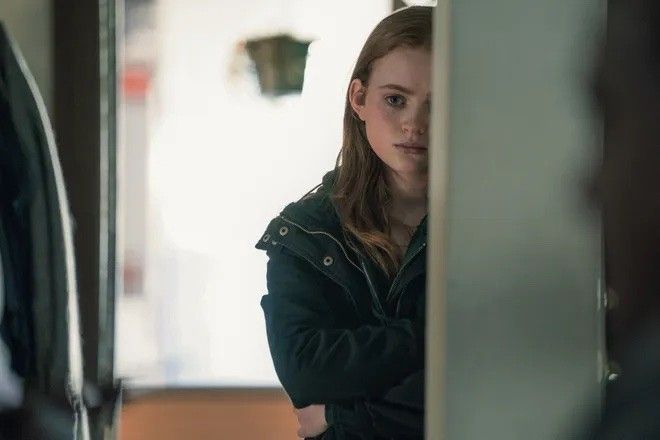
Playwright turned screenwriter Samuel D. Hunter wrote an intimate stage piece for the screen. Here is how he did it.
Few stories in 2022 were as highly anticipated as The Whale. With Brendan Fraser staring in an intimate character-driven narrative directed by Darren Aronofsky and produced by A24, audiences had high expectations for a story that exercises the audience's empathy to a cathartic breaking point.
The Whale tells the story of Charlie, an obese and reclusive English teacher, who tries to reconnect with his estranged teenage daughter for one last chance at redemption. Playwright Samuel D. Hunter adapted the screenplay from one of his most successful plays that closed ten years ago, which was around the time that Aronofsky expressed interest in turning the stage play into a film. The story still holds onto many of its stage roots but leans into its cinematic language where words would fail to translate the character's interior state of mind. Knowing when to use dialogue over visuals is a difficult skill to learn, as many screenwriters know, and is something Hunter had to learn when writing the first draft of The Whale.
Hunter spoke with No Film School over the phone about his inspiration behind writing The Whale, how he adapted his original play for the silver screen, and the challenges he faced while writing the many drafts of The Whale.
This interview has been edited for length and clarity.
NFS: Congratulations on The Whale being out in select theaters everywhere now. I know that this story was originally a play that you wrote back in 2012. I'm curious about what some of the challenges were when adapting this play for the screen.
Samuel D. Hunter: I started working on the play even before that. 2012 was the New York Premiere. I realized today that it closed ten years ago tonight off-Broadway, December 15th, 2012. But it originated in Denver at the Denver Center. They did a developmental reading in like 2010 and then produced it in early 2011.
I had never conceived of this becoming a film. All that I wanted it to be was an off-Broadway playwright. When the play was produced, at the Playwrights Horizons, which is one of my favorite theaters in New York City, I was just overjoyed. That was exactly what I wanted to have happen. Telling this very personal story that was vulnerable and difficult to write and being able to share it with people. I got to follow it around. I did the Denver production, then I worked on it in New York, then I worked on it in Los Angeles and Chicago and all different teams, all different actors, all different directors, all the different designs, and learned a ton about it.
Then, Darren [Aronofsky] called me in right around this time, then years ago, and said, “Let's meet and talk about making it into a film.” Early on, I was struggling with it idea because I hadn’t done any screenwriting up to that moment. I had just assumed that Darren would want to do that traditional thing of opening it up and adding characters or flashbacks or different locations or different people. But every time I kind of sat down and ideated about that, it just started to fall apart. I think other plays of mine could open up more traditionally, but this story just is an invitation to spend time with this very complicated, very beautiful, very flawed human being.
I also didn't know if my playwright’s brain was able to understand how to open up a story through the language of cinema. In one of our early meetings, Darren said, “Let's keep it in the apartment,” which I knew was the right decision, but it is going to be really, really hard.
Over the 10 years, I was sort of asking, “What is the cinematic language?” While I think the play is a dialogue-driven piece, there's a lot of dialogue that's not in the movie because I found a way to tell it visually. Like in the play, there's a big monologue that Charlie (Brendan Fraser) gives to Thomas (Ty Simpkins) about his dead partner, Alan, and that's how we learned about Charlie's painful history and the sort of source of his trauma. In the movie, I cut that monologue and replaced it with an idea that I had for adding a second bedroom in the apartment that is sealed off and is this carefully preserved archeology of Charlie’s life with Alan. A lot of that backstory surrounding his partner is told visually. Then there were a lot of other things that I added over the years. Very early on, I added the Pizza Boy, the bird, a lot of the scenes where Charlie is in compilation, the scene where he decides to call Ellie is entirely silent, and the play that happens in dialogue. But the story does retain the original shape and journey of the play.
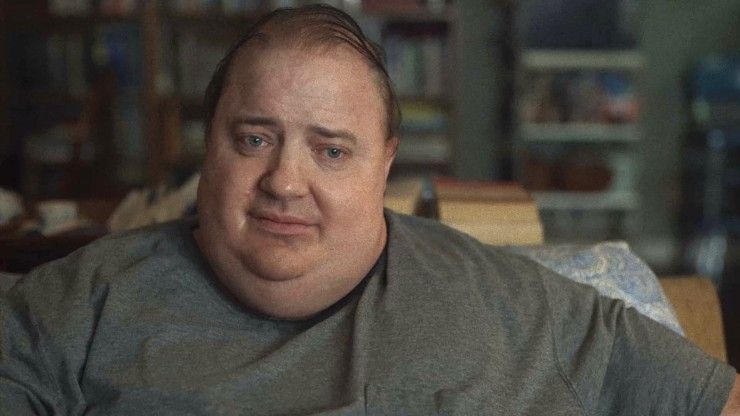
NFS: So this was the first screenplay that you've written?
Hunter: Yes, if you're talking about when I wrote the first draft 10 years ago. That was my first screenplay. I have done screenwriting in the interim, and I've done a lot of drafts of The Whale up through production when I was on set the entire time.
I've just been such a creature of the theater. I've written probably, since The Whale, I've probably written 12 or 13 plays since then. I'm just so grateful that Darren had the faith in me and faith in this script and had me on set and just invited me as a core collaborator. I feel incredibly grateful for that.
NFS: When I was reading about your background, I learned that you have an extensive background in writing which translate into playwriting. I'm really curious about how you structured your writing process when it comes to writing a screenplay.
Hunter: When I first started doing this, I felt like I was going to have to relearn everything. It’s like learning how to teach a string quartet that I was turning into a symphony. It just had way more substance and layers and language, and I was learning how that different language would translate the information I wanted to give.
The writing process was pretty similar. I've always been a very collaborative writer. Not in the sense that I give people the script and I'm saying rewrite it, but in the sense that I work with actors early on. My husband is a dramaturge, and we work together on everything. I think it's one of the reasons I'm not a novelist or a poet is because I love the feedback process–the rewriting and bringing people in and hearing it with different actors. I did a lot of that.
We didn't do readings of the screenplay, really, but I had a ton of meetings with Darren and his producers. I worked with him a lot just sitting down in diners and talking about the script and what it wanted to be. Ari Handel, one of Darren's producers, also worked very closely with me on it.
It was deliberate and collaborative. I don't think it was really until Darren had the idea for Brendan to be cast as Charlie that it was like, “Oh, this might be a thing now.” Until then, it was very theoretical, so it just kind of felt like I was working on something special and collaborative.
NFS: I know that finding the right actors for each part was one of the big struggles of the film.
Hunter: Yes. Everybody is acknowledging Brendan, and rightly so. He is incredible in it. He's also just such a deeply kind and generous human being. Then all these other actors are also bringing such depth and humanity and complexity to it. For a writer, there’s no greater gift.
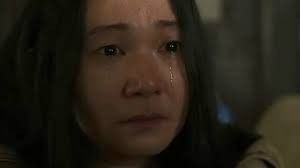
NFS: What is the process of developing these leading characters that drive this narrative forward without making them feel like archetypes?
Hunter: I don't approach stories from the outside and come on top of it and move them around like chess pieces. I've never really written like that. The way that I fundamentally approach storytelling is that I wait until I know that in my head I have a sense of the world. I have a sense of the people. Then, I usually have to figure out what the ending is, then I can let myself write it.
The process of writing early drafts is very intuitive, and it's just focusing on the people. I don't do a ton of outlining, especially early on. I might do that later if I'm finding structural problems and I need to figure something out. I try to just lead with the characters when I'm writing.
As a result, the characters don't fall under any archetypes because I'm writing about human beings who are very complicated and have flaws and wonderful things about them. It's a hard question for me to answer because I feel like the only reason I tell these stories the way that I tell them is because of the characters themselves.
NFS: How do you know when you fully realize a character when you're writing?
Hunter: I think it takes writing a draft to figure out who they are. Then, it's the slow process of going back because I think by the time you arrive at the end of a story, you've figured out so much about these people. I'm the type of writer who tries to allow myself to be surprised by things. I remember when I was writing this first draft, I didn't think Mary, [Ellie’s mother played by Samantha Morton] was going to be a part of the play. When I arrived at that scene, I knew that the mom had to show up.
I try to think about who each person is. What brought them to this place? How do they feel in this realm? How would I act in this situation if I was under those circumstances?
NFS: You have mentioned that you think about the end when you're thinking of writing the story. What inspired you to create the ending of The Whale and how does it compliments the beginning as well?
Hunter: I don't remember exactly when I had the idea for the end. I think it was so long ago now, 12 years ago. But I do [think about the end first]. With any play that I write, I need to know the end because I feel like writing a play is almost like going on a road trip without Google Maps. You know where you want to go. When you start writing, you might get ten pages in and realize that it is not the right way. Then, you delete those pages, you try a different route and you're like, “Oh, this feels much better. It seems like I'm heading in the right direction.”
Then, you can just surprise yourself along the way by trying to throw narrative curve balls at yourself, or what's an underexplored thing that you'll discover as you're writing a scene. You'll kind of chase that thing a little bit. It's almost like detective work in the beginning.
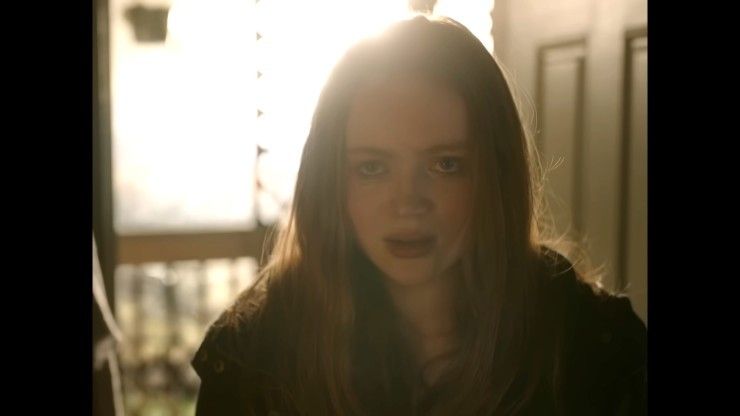
NFS: What I found profoundly moving throughout this film was the motif of Moby Dick that runs throughout it. How did you settle on the story and this specific analysis of it that often gets overlooked by the average reader?
Hunter: A couple of different endpoints. When I was writing the play, I was teaching expository writing to college freshmen, much the same way that Charlie is in the film. That's kind of where I started the whole thing. I want to write a play about an expository writing teacher. When I started learning more about it and putting some more personal things on the line from my past, I had to ask, “What do I know about this character?” I knew I wanted him to be a man of letters and a deeply intelligent, well-read human being.
I wrote that essay that's in the beginning that he kind of uses as a salve. I wrote that from my eighth-grade perspective. I remember I encountered Moby Dick when I was in the eighth grade. Much like Ellie, I didn't understand it, but I loved it. I could read that book all day long. I don't know what it was because, again, a lot of it went over my head. A lot of it just was hard to read. But there was something so striking and difficult and human about it that I just loved living in that world. That's the main reason that I included that as the sort of literary ballast of the whole movie.
NFS: I think those three words you used to describe it, striking, difficult, and human, that's what this story is. There are moments throughout the story where there's a duality of tones that are going against and working with each other. It's grief and despair mixed with hope and humanity.
Hunter: That's exactly the takeaway that I hope people would have. To me, that's real life. I think hope and despair do live alongside one another, and they kind of inform each other in very complicated ways. From the very beginning, I didn’t want to be a cynical writer. I'm not a cynical person, especially now my husband and I became parents five years ago to a little girl. I can't raise a human being in a cynical world. I refuse to do that.
I was also thinking cynicism is pretty cheap and easy and perversely comforting. I don't believe in easy platitudes. I think that's essentially what I hope people take away from the film is the sense of hard-won hope and hard-won faith.
NFS: I'm also curious about the timeline of this movie. It's all in one location, it takes place within a week. What are the challenges of giving yourself such a confined amount of time and space to write within?
Hunter: It's funny, I've always found those constraints to be really, really helpful in my writing. I gave myself the constraints in a play that I just had premiered a few months ago called A Case of the Existence of God, which was at the Signature Theater here in Manhattan early last summer, where everything happens in a cubicle and there are only two characters that never stand up. There was something about those deep constraints that were freeing. It also organized the entire play in my head immediately.
When I was writing The Whale, setting the story in the apartment within five days gives me some guardrails of how I wanted to structure this piece and what I want to have happen in this very compressed amount of time. The compressed time allows us to really live with this person in a really specific way that would’ve felt way too attenuated, sprawling, if I had the story cover dozens of years in flashbacks.
I'm so glad that Darren was interested in those constraints.
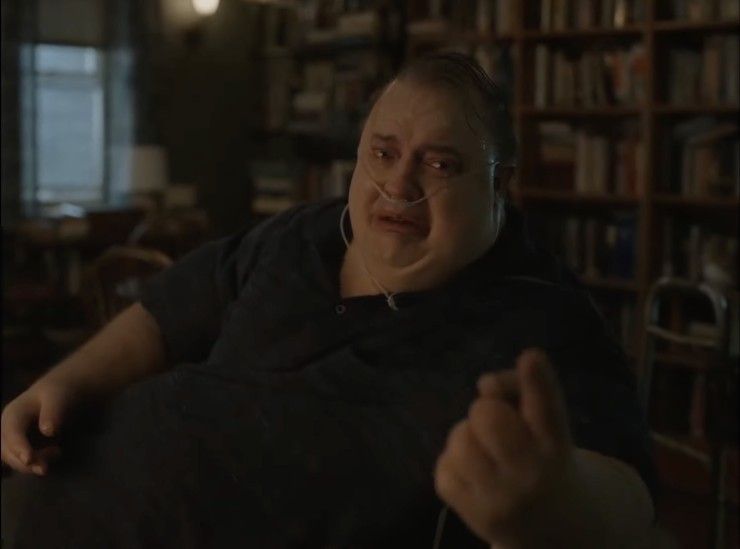
NFS: Yeah. Aronofsky has worked within those constraints before for Mother! He's a director who's comfortable working under those constraints. And I love that he had the faith in you to create a well-crafted story that works for those constraints.
Hunter: It's pretty amazing. I mean, yeah, the faith that he had in me in the script, I mean, it didn't even change in the edit. I mean, there are a few lines that got cut here and there, but, and that amount of faith is, I'm grateful for it. I feel incredibly lucky.
NFS: Do you have any advice you would love to give to any aspiring writers or someone who wants to write their first screenplay?
Hunter: The only advice I can give is to write ten screenplays or, if you're a playwright, write ten plays because you're going to learn so much about yourself. Also, write those ten plays without deciding what kind of writer you are.
I wrote a ton of different kinds of plays until I wrote The Whale. I think if you would've told me when I was in college when I was interested in experimental theater and wildly strange theater that I was going to become a realist, I would've been like, “What? No way. Absolutely not.” When I allowed myself to loosen my writing, I allowed myself to arrive at who I wanted to be as a writer.
If you hold too strongly onto your convictions of what kind of a writer you are, you're not allowing yourself to breathe.
Your Comment